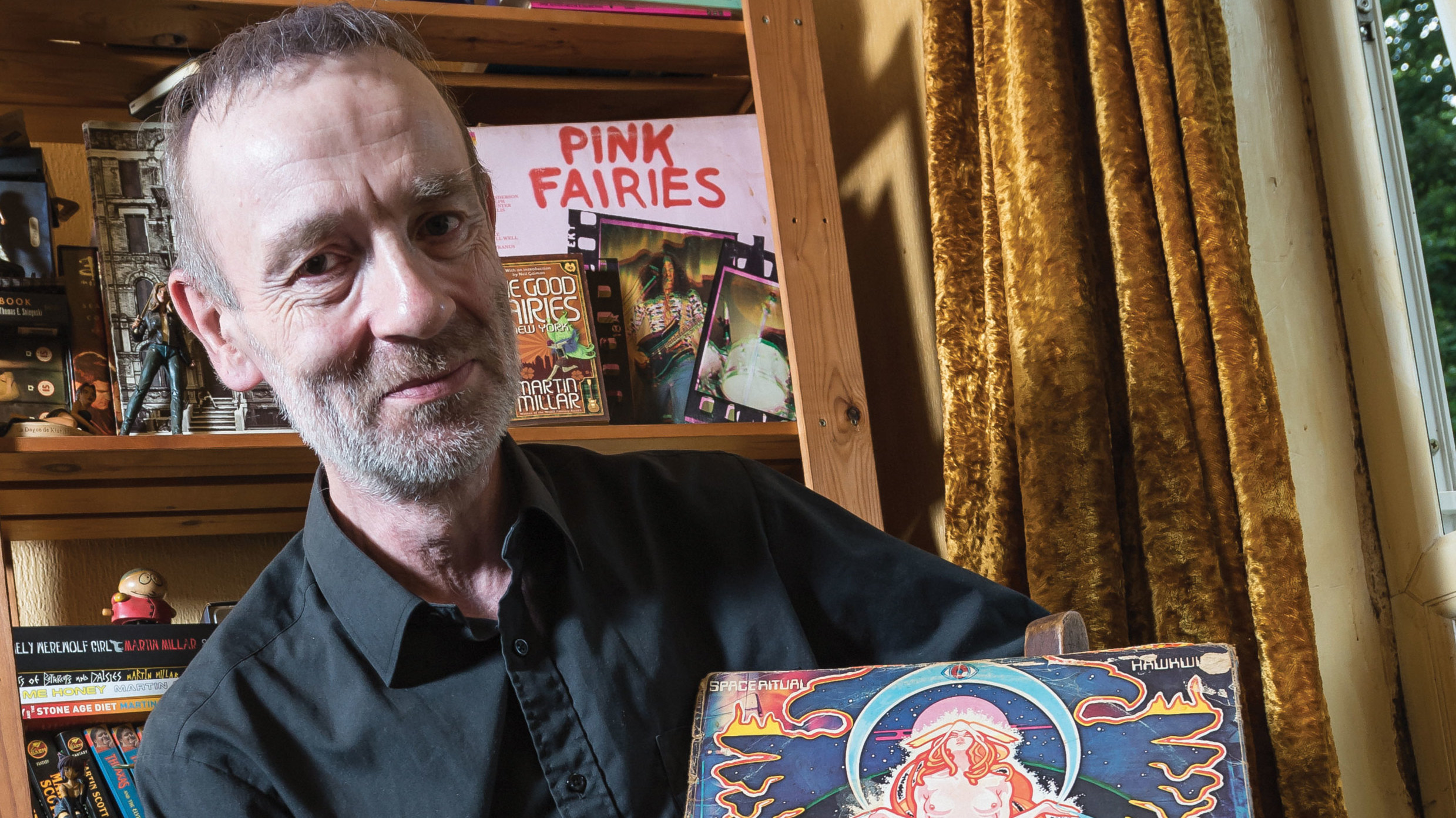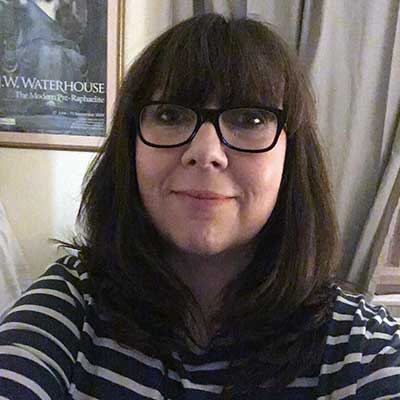“The first time I realised I was listening to something that wasn’t pop music was when an older friend played me Emerson Lake & Palmer. I was 13 and I lived in a nice suburb of Glasgow called Bishopbriggs. In those days, bands toured a lot more regularly and I saw many in Glasgow in Green’s Playhouse, an old cinema that held a few thousand people and, unusually, wasn’t licensed – great for us 13, 14 and 15-year-olds. My first gig there was ELP, with the older boy who’d played me the record, and his younger brother, who was my school friend. It was quite a spectacle: Emerson wearing the long boots, a garment quite unknown for a young man in Glasgow. Then there were the two keyboards at once, and getting underneath the instrument, plus sticking the knife in to hold the note. That show was great.
After that, me and my school friends all became big music fans very quickly. An album cost £2, and if you did a paper round, like I did, you could save up for one quite quickly. In town there were the record shops Bruce’s and Listen and a few more. We’d read NME and Sounds, see which bands were coming to the Playhouse and buy tickets – a couple of times I queued all night for Led Zeppelin tickets. We’d listen to the records belonging to our older siblings – Faces and Rolling Stones – but it wasn’t quite our music. We preferred the newer heavy rock of Black Sabbath, Deep Purple and Zep, but I seem to have known Yes and Close To The Edge all my life. At that time I was fantastically impressed by people’s good musicianship – at some point I’d realise there was more to music than that – and the Roger Dean covers also impressed me.
I loved album covers and later, when CDs came along, I certainly felt a disconnect with music because of the shrinking artwork. It all seemed very exciting – and unusual for a side of an album to be one song. CTTE must be the epitome of prog but there was one thing it lacked – it didn’t have the raw power of Hawkwind.
I have a powerful memory of the Space Ritual tour: there was Lemmy, there was Stacia – fully clothed, to our disappointment – bubbles were coming off the stage and liquid lights were swirling everywhere. The music was so physically powerful, my ears were ringing for days afterwards. I already liked science fiction thanks to my older brother’s collection, but finding a band that managed to fit that in… well, they did a pretty good version with space poetry by Michael Moorcock. I’ve listened to Space Ritual thousands oftimes and never gone off it. Hawkwind weren’t brilliant technical musicians, though, so already I was aware that there were different ways of approaching talent. They also made a lot of funny electronic noises alongside the masterful huge tunes and that was a huge draw for me.
Talking of electronic noises, I think of Neu!, which I bought a little later. They’d use a simple electronic rhythm and then just carry on with a faint bit of melody. It wasn’t a proper song and it intrigued me. Parents wouldn’t like it, which was always important. They were interesting and mysterious and they were German. That was my first flavour of European music and somehow it had no hint of The Beatles or Elvis, but it was a flavour that David Bowie would later adopt for a long time.
I’ve owned a lot of Captain Beefheart albums and Clear Spot is one of the greatest albums ever. After the avant-garde of Trout Mask Replica, he did at various times make more commercial albums, but when you sing like him, is that actually possible? If I was thinking of progressive music, Beefheart would have to be in there for his progression in guitar music, such as Big Eyed Beans From Venus. He’s also a fantastic singer and on the title track he evokes the too-hot swamp so well. He came to the Playhouse and I saw him twice – that fact seems quite surreal to me now.
I heard Tangerine Dream a little later than Neu!. Phaedra was the first album where I thought, ‘How are they making these noises?’ The equipment must have been so primitive and they made such a great song in the title track that was unlike anything I’d heard before.
The first Led Zeppelin album I was properly into was II, filtered down from slightly older kids who were students. I’m picking Physical Graffiti, though, because it’s a double album and there’s so much on here. Zep had a lot more thought than other rock bands – no one else was going to record a song like Kashmir. I’m not sure how this fits into the prog world, but I think they do, and with that sleeve too. Jimmy Page was keen on his orchestration and Ten Years Gone is a very intricate piece – I can’t think of another rock band then, or later, that would do that.
Brian Eno makes an appearance three times. Here Come The Warm Jets came first. I liked Roxy Music and Eno’s funny noises. When he left, I didn’t expect this: Baby’s On Fire, Driving Me Backwards… songs with amazing guitar from Robert Fripp, which I’d never heard the like of before. He had odd lyrics as well – cut-up techniques and surreal. I didn’t understand them, but I liked it. It was a shocking, and shockingly good, album.
I had a couple of Kevin Ayers records. He had gentle but nice songs but then he experimented with saxophonist Lol Coxhill. Way up in Scotland I would never have known that he, Eno, Nico and John Cale would have played together so when I did come across June 1, 1974 later in the 70s I really liked it. It’s prog because the whole of side one is so avant-garde: Heartbreak Hotel is a very strange version, you might wonder what it was, then there’s Nico’s version of The End, grimly terrifying and super-long.
Finally there’s 801 Live – I like this because of Phil Manzanera. He was always great in Roxy Music and here he is, teamed up briefly with Eno again. I didn’t know about it at the time [1976] but I eventually found it and I like it for the guitar, but also for Eno.
I heard Caravan’s In the Land Of Grey And Pink at the time, but myself and my friends were busy sticking our heads into bass bins at Sabbath gigs. Many years went past – 25, 30 – before I realised what a good record that is! I’m not a big rock flute fan but there’s some nice flute on here and the lyrics have a wry, English sense of humour that I like – ‘smoking punk weed’ and all that. The Pistols were the catalyst for me when it came to writing – that came in the 80s, when I finally found my confidence – but things like Caravan, Close To The Edge and Eno have become more long-term loves.”
New book Kink Me Honey is out now. Millar’s sci-fi/fantasy/music web serial Simulation Bleed is updated weekly.
- Meet the best turntables for your record collection
- Smaller budget? No problem! These are the best budget turntables

